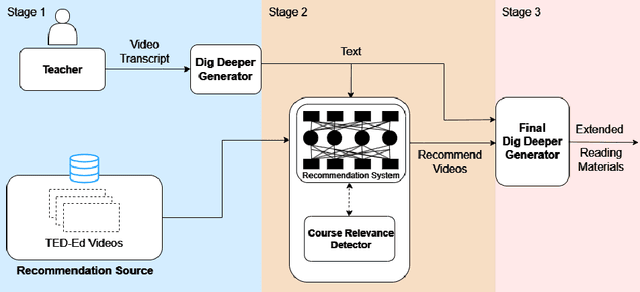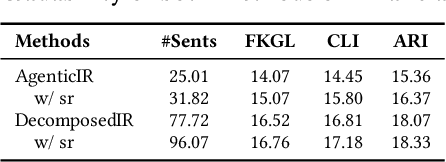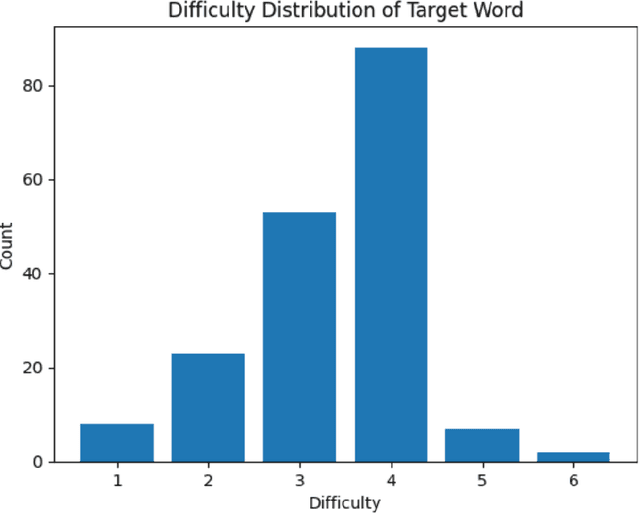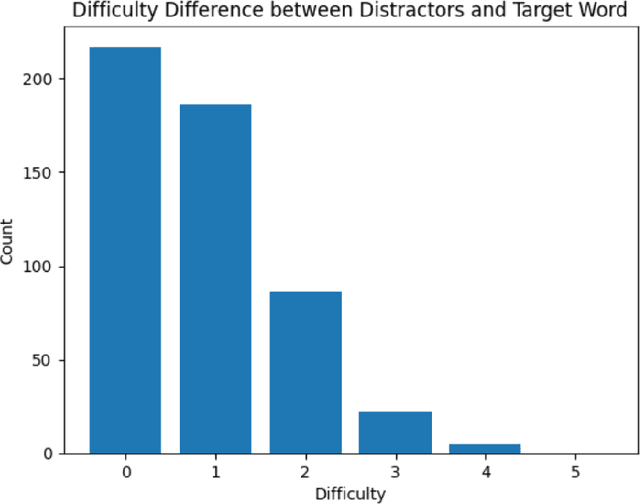An-Zi Yen
Confidence-Driven Multi-Scale Model Selection for Cost-Efficient Inference
Feb 25, 2026Abstract:Large Language Models (LLMs) have revolutionized inference across diverse natural language tasks, with larger models performing better but at higher computational costs. We propose a confidence-driven strategy that dynamically selects the most suitable model based on confidence estimates. By assessing a model's confidence in handling the task and response accuracy, tasks that are likely to be solved correctly are retained, while more uncertain or complex cases are delegated to a larger model, ensuring reliability while minimizing computation. Specifically, we evaluate a model's likelihood of knowing the correct answer and the probability that its response is accurate. Experiments on the Massive Multitask Language Understanding (MMLU) benchmark show that our approach achieves accuracy comparable to the largest model while reducing computational costs by 20\% to 40\%. When applied to GPT-4o API calls, it reduces token usage by approximately 60\%, further improving cost efficiency. These findings indicate the potential of confidence-based model selection to enhance real-world LLM deployment, particularly in resource-constrained settings such as edge devices and commercial API applications.
Personalized Graph-Empowered Large Language Model for Proactive Information Access
Feb 25, 2026Abstract:Since individuals may struggle to recall all life details and often confuse events, establishing a system to assist users in recalling forgotten experiences is essential. While numerous studies have proposed memory recall systems, these primarily rely on deep learning techniques that require extensive training and often face data scarcity due to the limited availability of personal lifelogs. As lifelogs grow over time, systems must also adapt quickly to newly accumulated data. Recently, large language models (LLMs) have demonstrated remarkable capabilities across various tasks, making them promising for personalized applications. In this work, we present a framework that leverages LLMs for proactive information access, integrating personal knowledge graphs to enhance the detection of access needs through a refined decision-making process. Our framework offers high flexibility, enabling the replacement of base models and the modification of fact retrieval methods for continuous improvement. Experimental results demonstrate that our approach effectively identifies forgotten events, supporting users in recalling past experiences more efficiently.
OI-Bench: An Option Injection Benchmark for Evaluating LLM Susceptibility to Directive Interference
Jan 19, 2026Abstract:Benchmarking large language models (LLMs) is critical for understanding their capabilities, limitations, and robustness. In addition to interface artifacts, prior studies have shown that LLM decisions can be influenced by directive signals such as social cues, framing, and instructions. In this work, we introduce option injection, a benchmarking approach that augments the multiple-choice question answering (MCQA) interface with an additional option containing a misleading directive, leveraging standardized choice structure and scalable evaluation. We construct OI-Bench, a benchmark of 3,000 questions spanning knowledge, reasoning, and commonsense tasks, with 16 directive types covering social compliance, bonus framing, threat framing, and instructional interference. This setting combines manipulation of the choice interface with directive-based interference, enabling systematic assessment of model susceptibility. We evaluate 12 LLMs to analyze attack success rates, behavioral responses, and further investigate mitigation strategies ranging from inference-time prompting to post-training alignment. Experimental results reveal substantial vulnerabilities and heterogeneous robustness across models. OI-Bench is expected to support more systematic evaluation of LLM robustness to directive interference within choice-based interfaces.
CARPAS: Towards Content-Aware Refinement of Provided Aspects for Summarization in Large Language Models
Oct 08, 2025Abstract:Aspect-based summarization has attracted significant attention for its ability to generate more fine-grained and user-aligned summaries. While most existing approaches assume a set of predefined aspects as input, real-world scenarios often present challenges where these given aspects may be incomplete, irrelevant, or entirely missing from the document. Users frequently expect systems to adaptively refine or filter the provided aspects based on the actual content. In this paper, we initiate this novel task setting, termed Content-Aware Refinement of Provided Aspects for Summarization (CARPAS), with the aim of dynamically adjusting the provided aspects based on the document context before summarizing. We construct three new datasets to facilitate our pilot experiments, and by using LLMs with four representative prompting strategies in this task, we find that LLMs tend to predict an overly comprehensive set of aspects, which often results in excessively long and misaligned summaries. Building on this observation, we propose a preliminary subtask to predict the number of relevant aspects, and demonstrate that the predicted number can serve as effective guidance for the LLMs, reducing the inference difficulty, and enabling them to focus on the most pertinent aspects. Our extensive experiments show that the proposed approach significantly improves performance across all datasets. Moreover, our deeper analyses uncover LLMs' compliance when the requested number of aspects differs from their own estimations, establishing a crucial insight for the deployment of LLMs in similar real-world applications.
MathEDU: Towards Adaptive Feedback for Student Mathematical Problem-Solving
May 23, 2025Abstract:Online learning enhances educational accessibility, offering students the flexibility to learn anytime, anywhere. However, a key limitation is the lack of immediate, personalized feedback, particularly in helping students correct errors in math problem-solving. Several studies have investigated the applications of large language models (LLMs) in educational contexts. In this paper, we explore the capabilities of LLMs to assess students' math problem-solving processes and provide adaptive feedback. The MathEDU dataset is introduced, comprising authentic student solutions annotated with teacher feedback. We evaluate the model's ability to support personalized learning in two scenarios: one where the model has access to students' prior answer histories, and another simulating a cold-start context. Experimental results show that the fine-tuned model performs well in identifying correctness. However, the model still faces challenges in generating detailed feedback for pedagogical purposes.
Stay Hungry, Stay Foolish: On the Extended Reading Articles Generation with LLMs
Apr 21, 2025


Abstract:The process of creating educational materials is both time-consuming and demanding for educators. This research explores the potential of Large Language Models (LLMs) to streamline this task by automating the generation of extended reading materials and relevant course suggestions. Using the TED-Ed Dig Deeper sections as an initial exploration, we investigate how supplementary articles can be enriched with contextual knowledge and connected to additional learning resources. Our method begins by generating extended articles from video transcripts, leveraging LLMs to include historical insights, cultural examples, and illustrative anecdotes. A recommendation system employing semantic similarity ranking identifies related courses, followed by an LLM-based refinement process to enhance relevance. The final articles are tailored to seamlessly integrate these recommendations, ensuring they remain cohesive and informative. Experimental evaluations demonstrate that our model produces high-quality content and accurate course suggestions, assessed through metrics such as Hit Rate, semantic similarity, and coherence. Our experimental analysis highlight the nuanced differences between the generated and existing materials, underscoring the model's capacity to offer more engaging and accessible learning experiences. This study showcases how LLMs can bridge the gap between core content and supplementary learning, providing students with additional recommended resources while also assisting teachers in designing educational materials.
Template-Based Financial Report Generation in Agentic and Decomposed Information Retrieval
Apr 19, 2025



Abstract:Tailoring structured financial reports from companies' earnings releases is crucial for understanding financial performance and has been widely adopted in real-world analytics. However, existing summarization methods often generate broad, high-level summaries, which may lack the precision and detail required for financial reports that typically focus on specific, structured sections. While Large Language Models (LLMs) hold promise, generating reports adhering to predefined multi-section templates remains challenging. This paper investigates two LLM-based approaches popular in industry for generating templated financial reports: an agentic information retrieval (IR) framework and a decomposed IR approach, namely AgenticIR and DecomposedIR. The AgenticIR utilizes collaborative agents prompted with the full template. In contrast, the DecomposedIR approach applies a prompt chaining workflow to break down the template and reframe each section as a query answered by the LLM using the earnings release. To quantitatively assess the generated reports, we evaluated both methods in two scenarios: one using a financial dataset without direct human references, and another with a weather-domain dataset featuring expert-written reports. Experimental results show that while AgenticIR may excel in orchestrating tasks and generating concise reports through agent collaboration, DecomposedIR statistically significantly outperforms AgenticIR approach in providing broader and more detailed coverage in both scenarios, offering reflection on the utilization of the agentic framework in real-world applications.
Refining Financial Consumer Complaints through Multi-Scale Model Interaction
Apr 14, 2025Abstract:Legal writing demands clarity, formality, and domain-specific precision-qualities often lacking in documents authored by individuals without legal training. To bridge this gap, this paper explores the task of legal text refinement that transforms informal, conversational inputs into persuasive legal arguments. We introduce FinDR, a Chinese dataset of financial dispute records, annotated with official judgments on claim reasonableness. Our proposed method, Multi-Scale Model Interaction (MSMI), leverages a lightweight classifier to evaluate outputs and guide iterative refinement by Large Language Models (LLMs). Experimental results demonstrate that MSMI significantly outperforms single-pass prompting strategies. Additionally, we validate the generalizability of MSMI on several short-text benchmarks, showing improved adversarial robustness. Our findings reveal the potential of multi-model collaboration for enhancing legal document generation and broader text refinement tasks.
ISSR: Iterative Selection with Self-Review for Vocabulary Test Distractor Generation
Jan 07, 2025



Abstract:Vocabulary acquisition is essential to second language learning, as it underpins all core language skills. Accurate vocabulary assessment is particularly important in standardized exams, where test items evaluate learners' comprehension and contextual use of words. Previous research has explored methods for generating distractors to aid in the design of English vocabulary tests. However, current approaches often rely on lexical databases or predefined rules, and frequently produce distractors that risk invalidating the question by introducing multiple correct options. In this study, we focus on English vocabulary questions from Taiwan's university entrance exams. We analyze student response distributions to gain insights into the characteristics of these test items and provide a reference for future research. Additionally, we identify key limitations in how large language models (LLMs) support teachers in generating distractors for vocabulary test design. To address these challenges, we propose the iterative selection with self-review (ISSR) framework, which makes use of a novel LLM-based self-review mechanism to ensure that the distractors remain valid while offering diverse options. Experimental results show that ISSR achieves promising performance in generating plausible distractors, and the self-review mechanism effectively filters out distractors that could invalidate the question.
Paraphrase-Aligned Machine Translation
Dec 08, 2024Abstract:Large Language Models (LLMs) have demonstrated significant capabilities in machine translation. However, their translation quality is sometimes questioned, as the generated outputs may deviate from expressions typically used by native speakers. These deviations often arise from differences in sentence structure between language systems. To address this issue, we propose ParaAlign Translator, a method that fine-tunes LLMs to paraphrase sentences, aligning their structures with those of the target language systems. This approach improves the performance of subsequent translations. Experimental results demonstrate that the proposed method enhances the LLaMA-3-8B model's performance in both resource-rich and low-resource scenarios and achieves parity with or surpassing the much larger LLaMA-3-70B model.
 Add to Chrome
Add to Chrome Add to Firefox
Add to Firefox Add to Edge
Add to Edge